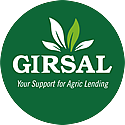The Chief Executive Officer of GIRSAL, Mr. Kwesi Korboe, strongly advocates collaboration, partnerships, and coherent policies in the agricultural sector. Acknowledging agriculture as a cross-sectoral industry, he stresses the importance of strengthened partnerships and collaborations for achieving significant outcomes in Ghana. The inability to unite various sector actors for growth, according to Mr. Korboe, is a critical challenge in the agricultural sector. “The difficulty we face as a country is bringing together the diverse sector actors who influence agriculture. Creating an alliance to identify ways to move agriculture forward is a necessity,” he asserts.
Despite considerable financial support and investments from the government and development partners over the years, the sector has not realize its potential. To resolve this, Mr. Korboe proposes a holistic approach that considers all aspects of Ghana’s agricultural sector. The need for more consistency and an agreed convergence of policy also hampers the sector’s growth with the government, neglecting the knowledge and advice of industry experts who understand what’s needed to drive the sector forward.
Furthermore, Mr. Korboe identifies a need for more cohesion between the public and private sectors as a significant obstacle. The private sector, responsible for growing and processing various agricultural value chains, is often sidelined from leading transformative initiatives that directly impact them. Meanwhile, the public sector assumes the lead role without fully acknowledging the private actors’ concerns and needs.
To counter these issues, GIRSAL has broadened its operational objectives to encompass policy advocacy, acknowledging that finance alone can’t assure the sector’s success. “Financing is just the icing on the cake in agriculture,” says Mr. Korboe. “Without a conducive environment for agribusinesses to flourish, no amount of financial aid will fulfill its intended purpose.”
GIRSAL initiated the Agricultural Stakeholders Convening & Advocacy Platform (ASCAP) to collaborate with other industry actors to provide a holistic crosscutting sectoral approach to address challenges within the various agricultural value chains. This collaborative initiative has been instrumental in helping to partially address the issue of the impasse of renewal of the Fruit Terminal Company (FTC) license at Shed 9, assessing the Fertilizer Subsidy Program and working with the Development Bank of Ghana (DBG) and the Ghana International Trade Commission to support issues of investigating the Competitiveness and Trade Remedies of the Poultry Broiler Industry.
A cooperative approach involving public and private actors is crucial for Ghana to harness its agricultural potential fully. This collaboration can identify sector bottlenecks and create optimal solutions. Long-term agricultural policies that endure beyond political cycles can result in a substantial transformation of the sector.
Moreover, an inclusive platform for dialogue that draws on the expertise of all stakeholders can drive substantial growth in the agricultural sector and foster sustainable development. As Mr. Korboe emphasizes, the vision of a prosperous agricultural sector in Ghana lies in the power of collaboration and coherent policy. Both public and private sectors can overcome challenges, drive innovation, and create a nurturing environment for agribusinesses by working together.
These insights were shared by Mr. Korboe at the recent Citi Agribusiness Forum, themed “Understanding and Leveraging Agribusiness Value Chains.
The Citi Business Festival is an annual month-long initiative marked with on-air and outdoor events in June to equip Ghanaian businesses with strategies to grow and scale up while meeting emerging trade and commerce trends. GIRSAL is proud to support this initiative; we see immense value in championing a transformative agenda in the Agricultural sector.
